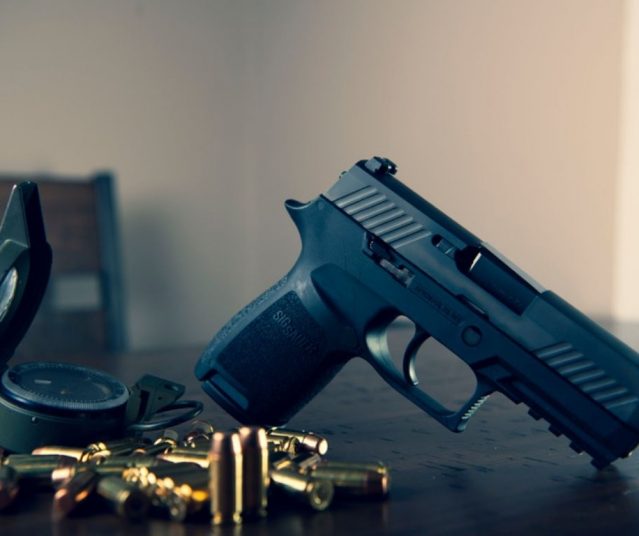
Firearm Prohibition Orders (FPO) and Weapon Prohibition Orders (WPO) are both orders which, when issued by the NSW Commissioner of Police place very certain and specific obligations on the recipients, but most importantly, give additional powers to the Police in relation to the recipients. Often both are made at once so the recipient will receive an FPO and WPO simultaneously. As the name suggests, the orders prevent the recipient from possessing a firearm or weapon, however the restrictions are not limited to that, and it is important to understand the full effect of the orders. FPO and WPO need to be understood, as breaches of them are treated seriously.
When can an FPO/WPO be made?
Part 7 of the Firearms Act 1996 (NSW) deals with Firearm Prohibition Orders.
It is an order by the Commissioner of NSW Police against ‘a person’. In order to issue a FPO a person, section 74 of the Firearms Act 1996 (NSW) states that the Commissioner must be of the opinion that the person is “not fit, in the public interest, to have possession of a firearm”. There are various considerations which can give rise to this opinion, most commonly include the following:
The Order must be served on the recipient personally and cannot simply be posted to them or sent by email.
Similarly, Part 5 of the Weapons Prohibition Act 1998 (NSW) deals with Weapon Prohibition Orders, with section 33 of the Weapons Prohibition Act 1998 (NSW) mirroring that of section 74 of the Firearms Act 1996 (NSW) as to when an order can be made.
What is a FPO/WPO?
An FPO prohibits the recipient from:
In addition to the above, the recipient of the order cannot reside at a house where a firearm, firearm parts or ammunition are kept.
The recipient of an order is also prohibited from entering any of the following ‘restricted premises’:
(a) the premises specified in a firearms dealer’s licence, or
(b) a shooting range, or
(c) the premises of a firearms club.
The orders do not only affect the recipient of the order. It is also an offence to supply or give possession of a firearm, a firearm part of ammunition to a person, knowing that the person is subject to an FPO.
An WPO has slightly less restrictive conditions, in that the only two conditions are that:
A prohibited weapon is defined under Schedule 1 of the Weapons Prohibition Act 1998 (NSW) and includes a long list of items which fall within its definition – that list can be found here.
Other major consequences of an FPO
For most people, the most intrusive factor of having an FPO is extended power that it grants Police above and well beyond their ordinary powers.
Section 74A of the Firearms Act 1996 (NSW) states the following:
and conduct a search of the person, or of the premises, vehicle, vessel or aircraft, for any firearms, firearm parts or ammunition.
“premises” includes any place, whether built on or not.
The effect of the above means that an FPO extends the power of the NSW Police to search a recipient without a search warrant or without any reasonable suspicion.
Penalties for breaching an FPO
| Section | Offence | Maximum Penalty |
| 74(1) | Acquire, possess or use a firearm. If the firearm is a pistol or prohibited firearm. | 14 years |
| 74(1) | Acquire, possess or use a firearm. If the firearm is not a pistol or prohibited firearm. | 5 years |
| 74(2) | Acquire or possess a firearm part. If the firearm is a pistol or prohibited firearm. | 14 years |
| 74(2) | Acquire or possess a firearm part. If the firearm is not a pistol or prohibited firearm. | 5 years |
| 74(3) | Acquire or possess ammunition for any firearm. | 5 years |
| 74(4) | Supply or give possession of a firearm or firearm part to another person knowing that the other person is subject to a firearms prohibition order. If the firearm is a pistol or prohibited firearm. | 14 years |
| 74(4) | Supply or give possession of a firearm or firearm part to another person knowing that the other person is subject to a firearms prohibition order. If the firearm is not a pistol or prohibited firearm. | 5 years |
| 74(5) | Supply or give possession of ammunition for any firearm to another person knowing that the other person is subject to a firearms prohibition order. | 5 years |
| 74(6) | Reside at premises where there are firearms. | 12 months and/or $5,500 |
| 74(8) | Attendance at ‘restricted premises’ without reasonable excuse | 12 months and/or $5,500 |
Penalties for breaching an WPO
| Section | Offence | Maximum Penalty |
| 34(1) | possess or use a prohibited weapon i | 10 years |
| 34(3) | Sell or give possession of a prohibited weapon to another person, knowing that the other person is prohibited from possessing prohibited weapons by a weapons prohibition order | 10 years |
Challenging an FPO/WPO
The decision to issue an FPO/WPO is made solely by the Commissioner of Police and does not need to be approved by a Court or Tribunal, compared to an order like a Search Warrant which needs to be independently approved. However, the orders can be challenged. If you receive an FPO/WPO, you must seek an internal review of the decision within 28-days. If the internal review is successful, then the order is overturned. Otherwise, if the decision is confirmed upon internal review, then the next option is to seek a review in the NSW Civil and Administrative Tribunal, otherwise known as NCAT.
Photo by Derwin Edwards